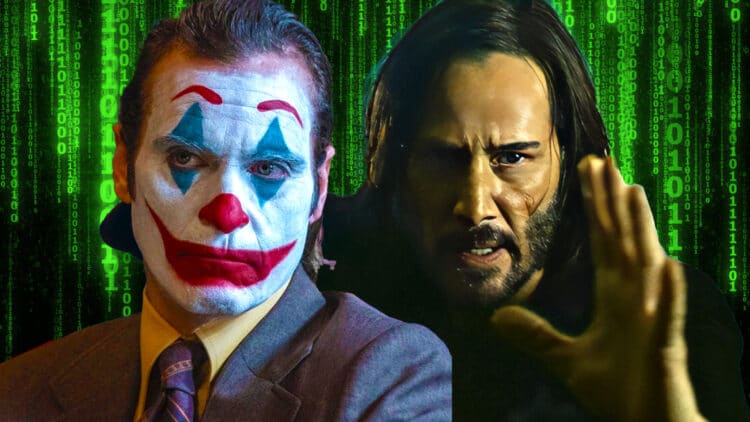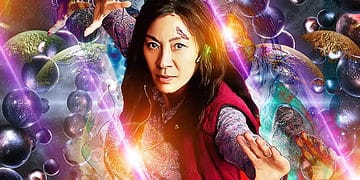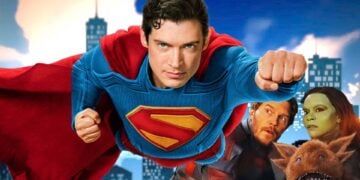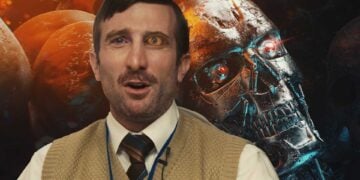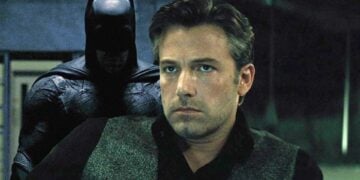In stark defiance to its pre-release controversy that it was a rallying cry for would-be mass shooters to go wild, Todd Phillips’ Joker became a true cultural phenomenon in late 2019. On top of clearing $1 billion worldwide with ease and earning multiple Academy Awards, including a Best Actor Oscar for Joaquin Phoenix, his iteration of Mr. J also took on a life of its own. Go to any Comic-Con since 2019, and you’re bound to cross paths with multiple Arthur Flecks, while his Joker make-up and origin story have been embraced as emblematic of the downtrodden and societal outcasts. A half-decade hence, Joker: Folie a Deux recognizes this, but not in the way one expects.
As Arthur Fleck’s trial proceeds in Folie a Deux, he gradually becomes disillusioned with the Joker persona, and eventually renounces it outright, much to the chagrin of his legions of fans cheering him outside of the Gotham City courthouse. Lady Gaga’s Harley Quinn is also especially enraged at Arthur abandoning the uprising he kicked off and breaks off their romance. As Folie a Deux ends with Arthur shanked to death by a fellow prisoner (implied to be the real future Joker as he carves a Glasgow grin into his own face), the message the movie sends, or at least implies, is a hard pill for its audience to swallow – Arthur never believed in his populist philosophy that a society that treats its most lowly, impoverished denizens like vermin is doomed to “get what you f—ing deserve!”, and by extension, neither should his in-movie or real-life followers. However, Joker: Folie a Deux is not the only recent Warner Bros. movie to pull the rug from under its audience like this.
The Matrix Resurrections Questions Its Own Need To Exist
After an 18-year hiatus and long-standing rumors of an eventual revival, The Matrix franchise finally returned to movie theaters (and streaming, via its day-and-date HBO Max release during the COVID-19 pandemic) with The Matrix Resurrections. For the fourth chapter of The Matrix series, Lana Wachowski flew solo as director, with Resurrections taking on a barely disguised subtest of calling into question whether it should have ever been made to begin with. In the movie, Keanu Reeves’ gradually re-awakening Neo works as a software developer for a video game company, currently producing the next installment of the highly popular Matrix video game series.
Scenes of Neo zoned out in production meetings with his fellow gaming techs debating the larger themes of The Matrix, how to proceed with focus group feedback, and the idea that another Matrix game is just an excuse for the developer to print money highlight the movie’s meta-commentary on its own greenlighting process. That commentary becomes even more unmistakable in Neo’s meeting with his business partner Smith (prior to regaining his memories and personality as Agent Smith) that the gaming studio is going to make another Matrix game with or without their involvement, suggesting they may as well take the job to at least retain some level of control over their own intellectual property. While Lana Wachowski is making a pretty obvious jab at Warner Bros.’ adamant pursuit of another Matrix movie, it also projects a message that The Matrix Resurrections itself doesn’t believe it needed to be made in the first place.
Joker & The Matrix Were Too Big For WB To Ignore
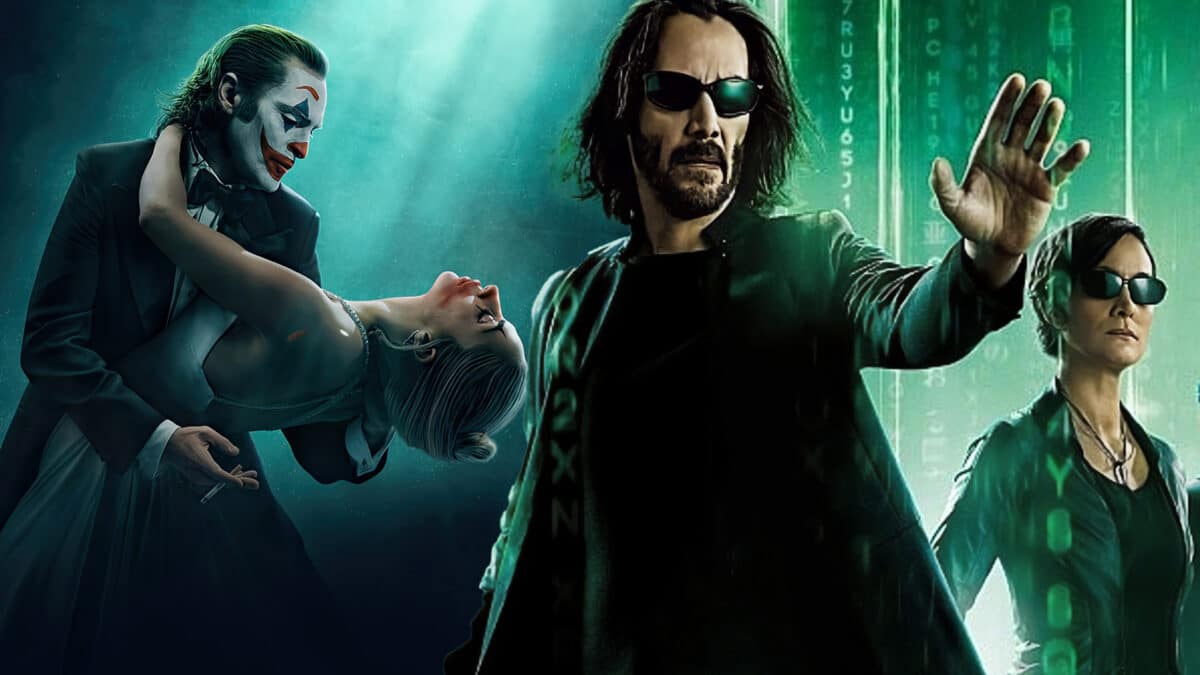
In the cases of both Joker and The Matrix, Warner Bros. found themselves in something of a catch-22. Joker became such a hit in 2019 (ironically despite the efforts of then DC Films-head Walter Hamada to stop it from happening), Warner Bros. would have made a terrible business move to not at least consider the possibility of greenlighting a sequel. The Matrix franchise has also been in a similar position since the original trilogy concluded.
Say what you will about The Matrix sequels (though their reputation has noticeably warmed over the years), but the franchise was so revolutionary and groundbreaking that the idea of eventually returning to The Matrix with a legacy sequel was always likely to appeal to Warner Bros. as a way to revive one of their biggest hits nearly 20 years later. Unfortunately, the approach they took to both was not the most commercially viable one.
The Approach Backfired (Big Time) For Both Joker: Folie a Deux & The Matrix Resurrections
In the end, despite being follow-ups to beloved mega-hits, the self-critical Matrix Resurrections and Joker: Folie a Deux became two of WB’s biggest box office bombs in recent memory. While their respective failures surely cannot be attributed to any one factor, the fact that both movies are introspective to the point of being critical of their own existence probably did a lot to turn audiences off.
From a purely auteur perspective, one could commend Lana Wachowski and Todd Phillips for at least swinging for the fences on ideas that, on the surface, seem all but impossible to get a major studio to sign off on. And, despite the failure of Resurrections, The Matrix franchise is getting the chance to ride again with Drew Goddard’s The Matrix 5. Still, if The Matrix Resurrections and Joker: Folie a Deux are proof of anything, it’s that long-awaited with off-the-wall, self-critical storytelling might be interesting from an outside-the-box perspective, but they’re also more likely than not to be box office poison.
RELATED: Joker: Folie à Deux Fan Theory Sparks Outrage: Arthur Fleck Didn’t Die!
Tell us, do you think Joker: Folie A Deux is a lot like The Matrix Resurrections?
Joker: Folie à Deux |
|---|
Arthur Fleck is institutionalized at Arkham, awaiting trial for his crimes as Joker. While struggling with his dual identity, Arthur not only stumbles upon true love, but also finds the music that's always been inside him. |
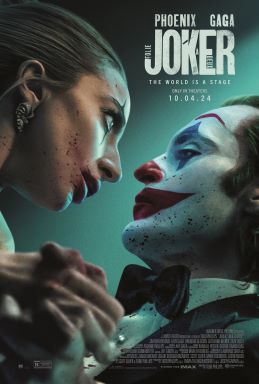 |
|---|
| Studio: Warner Bros. Pictures, Domain Entertainment, DC Studios, Joint Effort |
| Running Time: 138 minutes |
| Release Date: October 4, 2024 |
| Cast: Joaquin Phoenix, Lady Gaga, Brendan Gleeson, Catherine Keener, Zazie Beetz |
| Director: Todd Phillips |
| Writers: Scott Silver, Todd Phillips, Bob Kane |
| Genre: Crime, Musical, Thriller, Drama |
| Box Office: $191.9 million |


